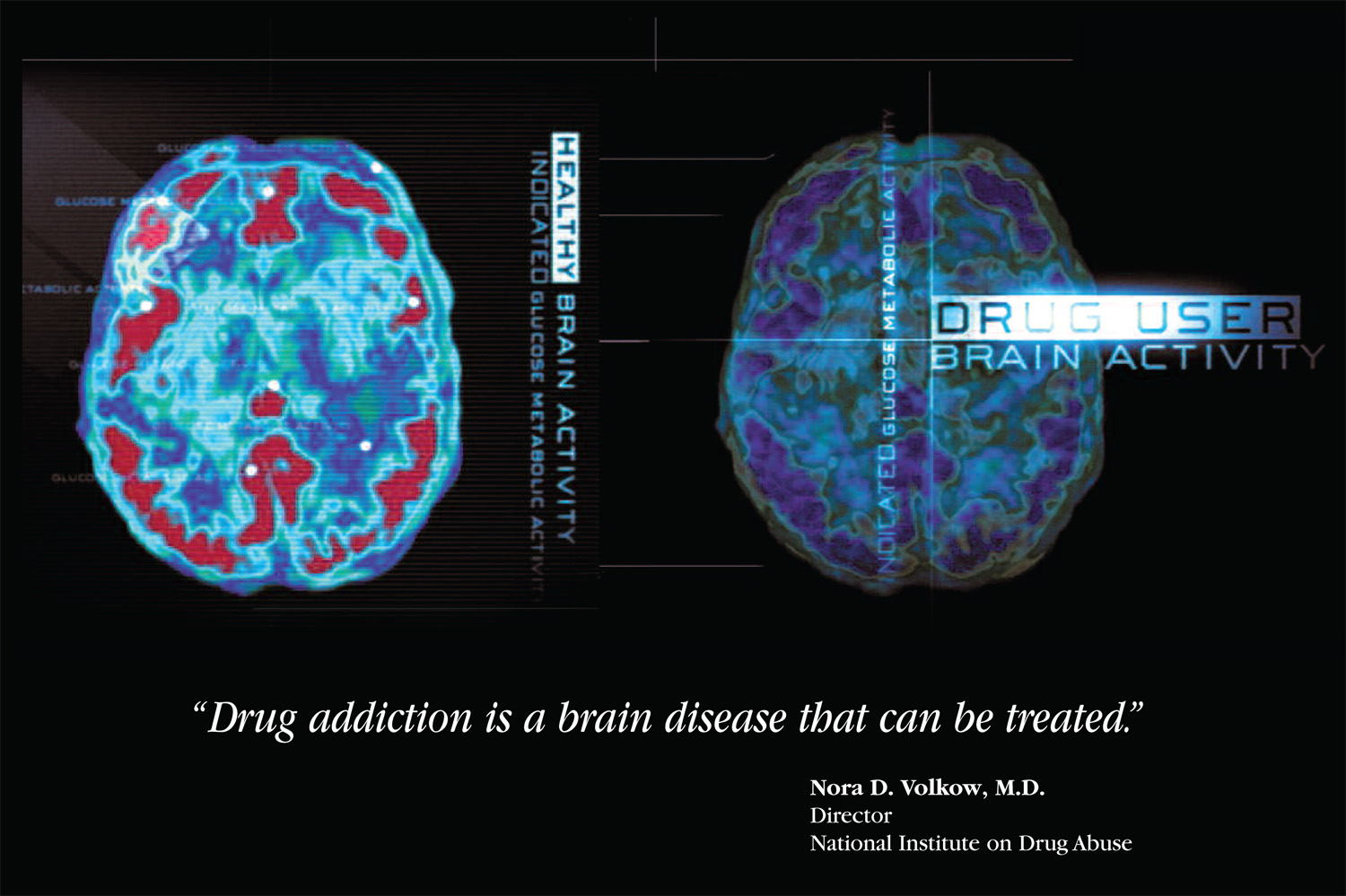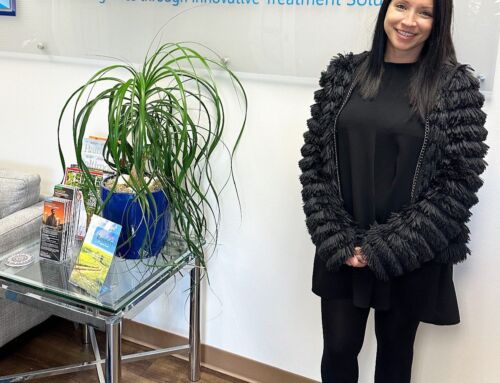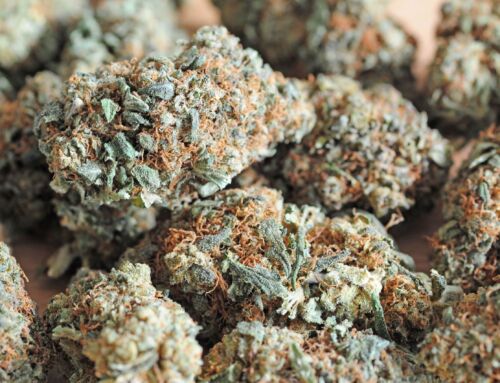Recently there has been much debate on the question of whether addiction is in fact a disease. Although supported by scientific evidence, this debate continues to rage on in society through social media and other media outlets. Adding to the debate is the misinformation and ignorance surrounding addiction which further perpetuates the stigma of addiction and enforces secrecy, guilt and shame.
Before we take a look at addiction itself, it is imperative that we first understand and define the term “disease.” According to Merriam-Webster, a disease is “a condition of the living animal or plant body or of one of its parts that impairs normal functioning and is typically manifested by distinguishing signs and symptoms.” Therefore, we know that addiction is in fact a disease because the brain is impacted and addiction has distinguishing signs and diagnosable symptoms.
Now, at the heart of the debate are two sides: one that believes addiction is a disease and the other that believes addiction is either a choice or a moral and/or character flaw. Unfortunately, the side that believes addiction is a choice do not seem to be able to differentiate their argument when looking at it through the lenses of other similar diseases. Many people believe that addiction is a choice, that a person suffering from addiction had the choice to initially begin taking and then abusing drugs or alcohol and then has a choice each time they use or return to using or drinking after a period of sobriety. However, let’s look at that argument from the perspective of other diseases, taking for example diabetes, cancer or even sexually transmitted diseases. All of these can be initially caused by choices such as smoking or poor exercise and diet or the choice of engaging in sexual behaviors. However, even though the initial choice was made, that does not take away from the fact that the person is suffering from a disease.
Additionally, it is important to understand why addiction is a disease. Addiction is considered a brain disease and impacts the prefrontal cortex of an individual. The prefrontal cortex, located at the front of the brain’s frontal lobe, is responsible for a variety of complex behaviors and functions which include planning, decision-making, logic, reasoning, problem solving, memory, impulse control, organization of emotional reactions, self-awareness and contributes to personality development. Additionally, the prefrontal cortex regulates the flow of dopamine, which is a neurotransmitter that helps control the brain’s reward and pleasure centers. Dopamine also helps regulate emotional responses. Therefore, we know that someone suffering from addiction is dealing with a brain that is not regulating correctly and thus an addicted person has an impaired ability to stop using drugs and alcohol. An impaired brain can also be influenced by environmental, social or other biological factors. Therefore, it is not fair to say a person suffering from addiction simply has the choice whether they use drugs and alcohol or not. Perhaps they made the initial choice to use substances, but once they make that choice they are engaged in dealing with a disease that they cannot control. Many people choose to use substances and do not deal with addiction. Many people drink alcohol socially or engage in substance use recreationally, but those people are not impacted by addiction because their brain reacts differently to substances or their genetics differ from someone predisposed to addiction. No one truly knows if they will suffer from addiction or not when making that initial choice to use a substance. Therefore, saying addiction is a choice is simply a stigma due to a misunderstanding of the genetic, biological, past experiences and environmental issues dealt with by someone suffering from addiction.
The stigma of addiction is very real and often crippling to a person suffering from addiction. Stigma also impacts their family and loved ones. The guilt, shame and remorse often keeps people from asking for help. The judgment of others of being weak, of poor moral fiber or character, or of being a “bad” person often fuels and perpetuates active addiction. Continued debate over whether addiction is a disease or not or whether addiction is a choice or not, does nothing to help someone recover from addiction. It simply exacerbates the feelings of guilt, shame, loneliness and distrust that a person with substance use disorder already feels and makes it less likely that they will open up to discuss their problem and seek help.
For years addiction has been classified as a disease, yet the stigma surrounding addiction continues to exist and fuels the misperception that addiction is a choice or a character flaw. Heaps of evidence through scientific studies and brain scans continue to support addiction as a brain disease. A person with a brain that is dysregulated, dealing with an impaired reward and pleasure center left to their own devices does not have a choice when they pick up substances. However, it is also important to point out that simply because someone with an addiction is not at fault for their disease, it does not excuse them of their decisions or allow them a free pass on their behaviors. All it does is give an understanding as to why their brain functions the way it does, explain why their actions and reactions and emotional responses occur and therefore make it necessary that they seek help for their disease through treatment. A person suffering from addiction will often use the fact that addiction is a disease as an excuse, blaming the disease of addiction on their use of substances, their attitudes, behaviors and actions. Classifying addiction as a disease does not mean that such actions are okay or should be tolerated. It simply gives an understanding of why the individual behaves and acts as they do, but more so it gives a course of action for treating the disease and ultimately aiding it into remission. Just like cancer, diabetes and other diseases, the disease of addiction requires proper long-term treatment that includes addressing all medical, therapeutic, environmental, behavioral and social factors as well as support services and lifestyle changes.
Addiction is a terrifying and often misunderstood issue. However, as we suffer in the grips of an addiction epidemic throughout America that shows no signs of slowing down, we must understand that education and awareness about that facts of addiction are necessary and ultimately vital in someone seeking help. Shaming people for suffering from addiction is unhelpful and ultimately detrimental not only to the person suffering but to society as a whole. There is no debate. Addiction meets the criteria to be classified as a disease. It is important to remember that people suffering from addiction are sick and dealing with an illness they already feel shameful, guilty and remorseful about and if we are ever going to overcome this epidemic, some education, understanding, empathy and love will go much further than anger, ignorance and hate.
If you or someone you know is in need of help because of drug and/or alcohol abuse or addiction, please give us a call. Maryland Addiction Recovery Center offers the most comprehensive dual diagnosis addiction treatment in the Mid-Atlantic area. If we aren’t the best fit for you or your loved one, we will take the necessary time to work with you to find a treatment center or provider that better fits your needs. Please give us a call at (410) 773-0500 or email our team at info@marylandaddictionrecovery.com. For more information on all of our drug addiction and alcohol addiction services and recovery resources, please visit our web site at www.marylandaddictionrecovery.com.

Table of Contents





